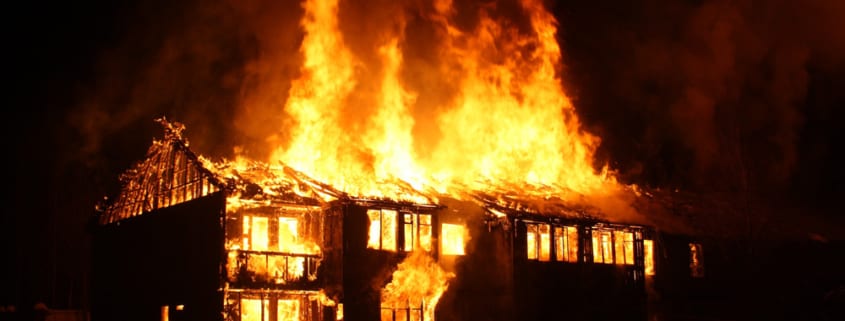Cooking Fire Prevention
From a dry Christmas tree adorned with 20-year-old lights to a set of drapes dangling near a faulty heater, fire risks seem ubiquitous this time of year. With the holiday season around the corner, it’s the perfect time to address leading causes of house fires and how to prevent them. For the #1 most common source of house fires, look no further than the kitchen.
Cooking Fire Causes
About half of residential fires are caused by cooking mishaps, most often because a range or oven was left unattended. But fires can occur when even the most diligent cooks are at the helm, from grease fires to electrical malfunctions. Taking some basic steps in prevention can greatly decrease the risk of your home going up in flames.
Kitchen Fire Prevention
The best prevention you can take when it comes to any type of house fire is installing and maintaining functional smoke detectors. They can mean the difference between life and death, between minor damage and total property loss. More than half of US house fire deaths occur in structures without working smoke detectors.
Here are some additional methods for preventing catastrophic cooking fires:
- Never leave cooking food unattended. Since that is not always realistic, at the very least set a timer.
- If it’s in your budget, consider installing smart appliances, which can help alert you of issues. Some even come with automatic shut-off switches, like if the oven has been on for too long.
- Remove flammable and combustible materials from the cooking area, such as dish towels and pot holders, and roll up your sleeves.
- If frying food, always use a thermometer for the oil.
- Thoroughly clean cookwear to prevent grease build-up, as its highly flammable.
- Make sure portable appliances have cooled off before storing them, and regularly clean out any crumbs or food debris.
- Regularly wipe down the inside of your microwave with hot soapy water.
- Grease fires can be suppressed with baking soda, table salt, a pot lid, or a fire extinguisher (class K), but NEVER USE WATER!
- For Outdoor Cooking: Keep the grill at least 10 feet from vegetation, and follow ALL instructions for that turkey fryer!
Reactive Fire Suppressors
Since most cooking fires occur when a stove is unattended, the previously-shared prevention methods might not be enough, particularly for aging folks with mobility issues. Homeowners and landlords should consider installing automatic fire suppressors. Devices like Auto-Out can be attached to cooktops with over-the-range microwaves or standard venthoods, and should a fire occur, the device will react and douse it. Because the suppressor is activated by flames, you don’t have to worry about heat, smoke, or steam accidentally triggering the device. It’s a simple and affordable method of keeping loved ones safe and protecting your property.
Review Your Property Policies
Unfortunately even the most prepared of us can be caught in an unexpected tragedy. If you would like to discuss how fire loss would be covered by your home or business policy, please contact us at Banas & Fickert Insurance Agency. And seriously, follow ALL the instructions on that turkey fryer!



